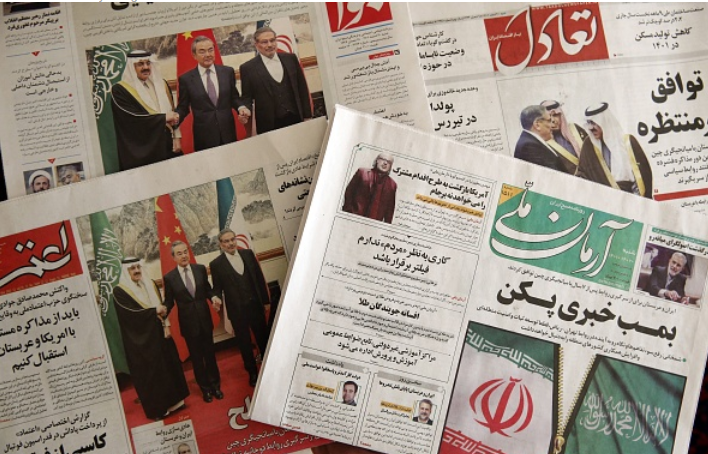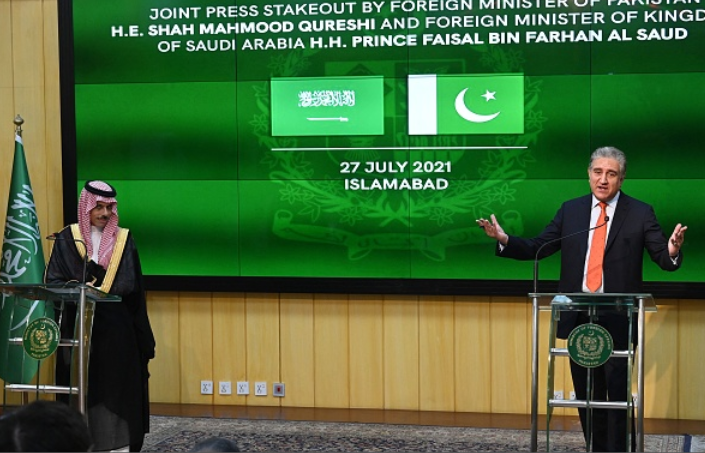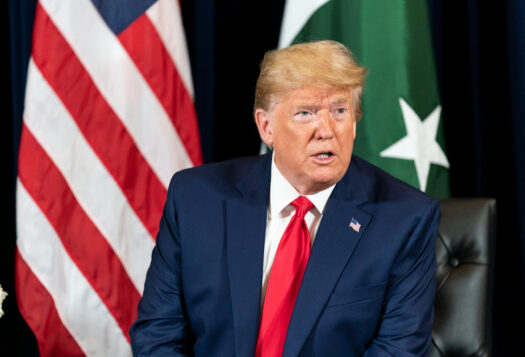
Following security talks in Beijing, Iran and Saudi Arabia agreed to re-establish diplomatic relations and reopen embassies in each other’s countries. Their agreement reactivates earlier commerce, economics, investment agreements, and the 2001 security collaboration deal. It also affirms state sovereignty and non-interference in each country’s domestic affairs.
The agreement is essential to promote peace and stability in the region and beyond, with China favorably contributing to resolving complex diplomatic and foreign policy issues. Pakistan will reckon with downstream implications due to its unique bilateral relations with Iran and Saudi Arabia, including easing tensions with India and promoting commercial ties with the Middle East and Central Asia.
China as a Broker of Peace
China’s increased mediatory influence in the Middle East has strengthened its image as a peace broker in recent years. China is perceived as a neutral party that does not align with any specific power bloc, giving Beijing a unique advantage over the U.S. and Europe in building reliable relationships. By interacting with all parties, Beijing’s pragmatic approach develops relationships based on mutual interests.
Pakistan will reckon with downstream implications due to its unique bilateral relations with Iran and Saudi Arabia, including easing tensions with India and promoting commercial ties with the Middle East and Central Asia.
The current agreement between Iran and Saudi Arabia demonstrates China’s ability to bring two avowed adversaries together and assist them in finding common ground. China accounts for roughly 30 percent of Iran’s foreign trade and is the largest oil export market to Saudi Arabia. China’s growing trade and economic links enabled it to utilize its global weight and influence as a peace broker. It is also worth noting that the decision comes as President Xi Jinping begins his third term, showing a continuation of China’s foreign policy objectives based on the cooperation model.
Although the deal has been interpreted differently in the West, it has helped to alleviate some concerns that China’s involvement in the region is primarily motivated by economic interests and not share interest in resolving fundamental political issues that underpin regional conflicts. There is also greater optimism for improved Chinese investments, infrastructure, and economic development in the region. China’s Belt and Road Initiative (BRI) stands to benefit from its newfound role as a peace broker.
Diminishing U.S. Influence
Even with political will, U.S. efforts to help normalize Iran-Saudi relations may not have been possible due to its prior involvement in the Middle East. Given the absence of diplomatic relations between the U.S. and Iran and its alliance with Saudi Arabia, the U.S. would not have been seen as an honest broker in Saudi-Iran mediation.
Despite portraying itself as a stabilizing force in the Middle East, the U.S. position has been contentious for various reasons. Several Middle East countries oppose U.S. security and military policies in the region. For example, U.S. military actions in Iraq and Libya were seen as destabilizing factors that later contributed to the growth of extremist groups such as ISIS and Al-Qaeda.
Furthermore, tensions existed between the United States, Saudi Arabia, and the U.A.E. The U.S.–Saudi partnership—traditionally based on the exchange of oil for military protection without meddling in Saudi royal affairs—suffered a significant setback in 2018 due to the murder of Saudi journalist Jamal Khashoggi and then-President Trump’s open criticism of the Kingdom.
The United States limited its support against the Arab coalition’s war in Yemen, causing a schism in its regional relations. Consequently, Saudi Arabia has turned to other countries, such as Russia and China, that are willing to invest in the country without imposing their values. The Saudi government has launched numerous initiatives under the Vision 2030 development plan to diversify its economy, reduce its dependence on oil, and transform the country’s strategic position into an asset—and consequently, decoupling from the U.S.
Implications for Pakistan
Stable relations and cooperation between Iran and Saudi Arabia benefit Pakistan’s efforts to promote regional integration and increase domestic economic development. As Iran and Saudi Arabia attempt to resolve their differences through negotiation, improved regional peace and stability may increase Pakistan’s commercial and economic engagement potential with the Middle East and Central Asia.
Pakistan values its close ties with Iran and Saudi Arabia. Iran is an important neighbor, and Saudi Arabia employs almost three million overseas Pakistanis and provides financial support in times of need. Pakistan can use this opportunity to seek crucial investments from both countries to ensure the China-Pakistan-Economic-Corridor’s success. Saudi Arabia and Iran are participants in the BRI.

Both Iran and Saudi Arabia have already shown interest in investing in Pakistan. Iran has vast reserves of untapped natural gas and energy resources that could help develop Pakistan’s gas and electricity transmission systems to overcome the burgeoning energy crisis. Similarly, it would benefit Pakistan to attract investments from Saudi Arabia to develop its oil and gas sector—particularly in exploration and production—which could help reduce the country’s reliance on imported oil, shoring up foreign exchange reserves.
Pakistan’s geography offers vast opportunities for regional connectivity, whose dividends will be collectively helpful for regional and international players. Moreover, this convergence will also help address complex geopolitical challenges to inter-regional connectivity and stability, such as Afghanistan. The overall regional security situation may improve because of an added inclination to resolve conflicts and lower regional tensions. This normalization would bring both parties to resolve issues through negotiations, which could help reduce sectarianism and extremist groups’ influence outside their border through proxies.
Normalization in Iran-Saudi diplomatic relations could help reduce regional tensions and create a more conducive environment for peace and stability. Iran and Saudi Arabia also enjoy cordial relations with Pakistan and India and could use their influence to ease tensions between the two South Asian countries. With reduced regional tensions, Pakistan and India may be more willing to engage in dialogue and pursue diplomatic solutions to their longstanding disputes.
Iran and Saudi Arabia also enjoy cordial relations with Pakistan and India and could use their influence to ease tensions between the two South Asian countries.
The agreement may also support multilateral forums such as the Shanghai Cooperation Organization (SCO), a platform for regional countries to discuss security and economic issues. Pakistan and India are members of the Shanghai Cooperation Organization (SCO); Iran recently joined, and Saudi Arabia has agreed to participate as a dialogue partner. Increased collaboration between Iran and Saudi Arabia within the SCO could create an opportunity for Pakistan and India to engage in constructive dialogue. For instance, in a recent positive development, Pakistan’s foreign minister agreed to attend the May 2023 SCO foreign ministers meeting in India.
It remains to be seen whether Iran and Saudi Arabia will be able to resolve their bilateral issues before agreeing to play such a role and whether India and Pakistan will welcome their involvement. The possibility of new regional dynamics should be regarded positively. With peace in the making between Pakistan’s two traditional friends, Islamabad could make domestic progress without walking the erstwhile tightrope of balancing its relations between both countries.
Also Read: Strengthening Relations with Saudi Arabia: The Quest for Pakistan’s Economic Survival
***
Image 1: Atta Kenare/AFP via Getty Images
Image 2: Aamir Qureshi/AFP via Getty Images


